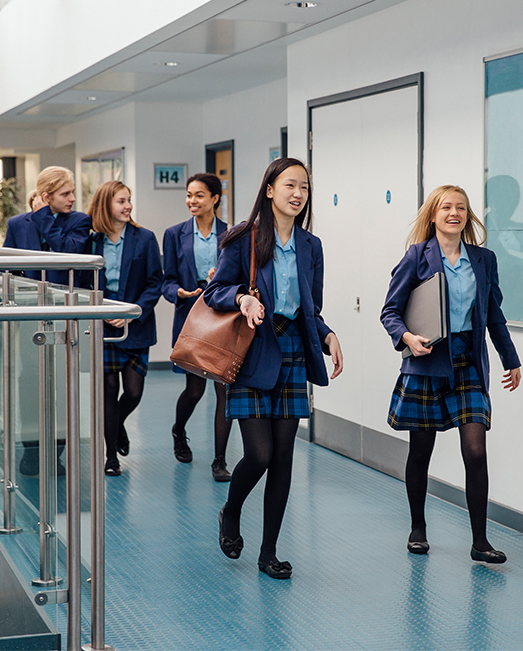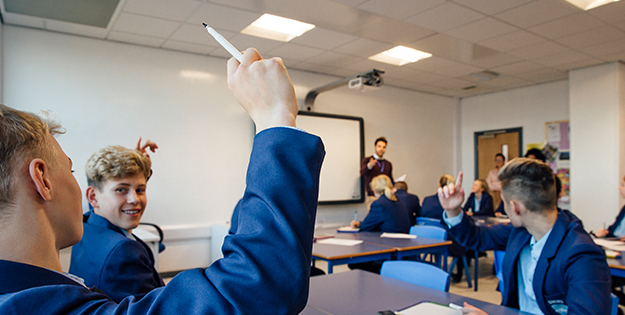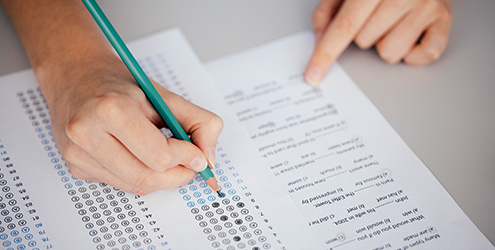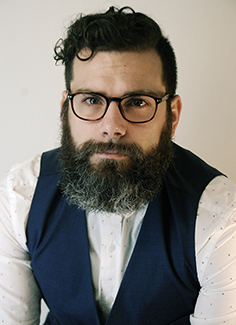Community
Copyright@ Australian Catholic University 1998-2026 | ABN 15 050 192 660 CRICOS registered provider: 00004G | PRV12008
Copyright@ Australian Catholic University 1998-2026 | ABN 15 050 192 660 CRICOS registered provider: 00004G | PRV12008

Selective schooling has had a string of bad publicity of late, with increasing calls for it to be phased out. But new research shows it’s not necessarily selective schools that are the problem — it’s school selectivity. Impact caught up with developmental science researcher Philip Parker to discuss this controversial area.
“Warped and elitist” was how one recent article headlined Australia’s selective schools, while another labelled them “inequitable and unethical”. But the problems with selective schooling may be more complex than many would believe.
Last year, ACU’s world-renowned educational psychologist, Professor Herb Marsh, warned the evidence “consistently challenges the assumption” that selective schools benefit academically-gifted children.
More recent research from ACU’s Institute for Positive Psychology and Education (IPPE) has reinforced the theory that the more selective a country’s schools are, the worse its children perform on average.
“Now is not the time to be considering more selective schools,” said the study’s lead researcher, Associate Professor Philip Parker.
“We should be finding ways to ensure our public schools integrate people from a diverse range of backgrounds and ability levels.”

The movement against selective schooling is not new. In 2002, a landmark review of public education in New South Wales recommended the dismantling of the system to leave only the seven oldest selective high schools in Sydney.
But the recommendation never came to fruition. NSW has the bulk of selective schools in Australia (19 selective and 29 partially selective), while they also exist in much smaller numbers in Victoria, Western Australia and Queensland.
In January this year, there were signs of an ideological shift amongst policymakers when Rob Stokes, the NSW Education Minister, flagged a move towards “inclusive” schooling.
"We need to have public schools that are inclusive of everyone rather than deliberately separate children on the basis that some are gifted and talented and others are not,” Stokes said, adding that there “may be merit in opening up selective schools to local enrolments”.
But while Associate Professor Parker supports any move to limit selective schools, his research shows it’s not necessarily selective schooling that’s the problem; it’s school selectivity.
“I think we get hung up on whether a school is by name selective or not, but in reality there are only about four selective schools in Victoria, a few more in NSW and not many anywhere else,” he said.
Parker argues that private schools are also selective in nature, in that they favour students with wealthy parents by virtue of high fees.
“In Australia we select kids into schools in lots of different ways — we’ve got private schools that favour those with wealthy parents, we have religious schools, we have selectivity by geography — there are lots of ways that schools can consist of kids that all look like each other in terms of their ability levels, and in our research, that's what we have picked out as dangerous.”
So, what are the dangers of increased school selectivity? Impact sat down with Associate Professor Parker to drill down into his research, which drew on evidence from 27 countries.
“Let's say you’re an average performer in the country as a whole, you get the average score in NAPLAN but you get selected into a high-achieving school. Chances are that even though you’re an average performer nationwide, you're going to be among the worst performing kids in your year grade, and as a result your academic self-concept is likely to be lower.
If we reverse that and imagine you’re a kid who is economically disadvantaged, who maybe lives in a rural area or lives in western Sydney, and have exactly the same NAPLAN score, chances are that in your school, you’re actually going to be among the top performing kids.
And so you have two kids with exactly the same NAPLAN score, and in one case their self-concept is diminished quite considerably, while in another school their self-concept is a whole lot higher.”
“What our other research has found is that the more selectivity there is, the more distortion happens to the child’s self concept.
The kids that are in high-performing selective schools feel even worse about themselves because they’re increasingly cut off from information about what they really look like in relation to the country as a whole.
Meanwhile, the kids who are in low performing schools develop an unrealistically positive view of themselves because they're cut off from experiencing what the true top performers look like.
So what we find is the more selectivity a country has, the bigger the Big Fish Little Pond Effect will be and the more distorted the self-beliefs are of the children in that country.”

“Essentially what you’re doing is robbing self-concept from the rich kids and giving it to the poor kids. That may sound fantastic, but there is a complicating factor, and we call it the ‘Perverse Robin Hood Effect’.
Selectivity actually makes it really hard for poorer kids to ‘spend’ their increased self-concept on better outcomes, and that’s due to the lower expectation that society places on children that come from the schools they attend. And so they’re actually less able to translate their greater confidence into more ambitious post-school pathways.”
“The sort of school you go to — whether it’s a comprehensive school or a selective school, a Catholic school or a private school — sends everybody a clear signal about where you’re headed in life and the sorts of things we should be expecting from you.
So even though you may gain self-concept from going to a less competitive school, the school you go to really suggests the sorts of options that are available to you, and so you may find it hard to convert that self-concept into things like better access to university.”
“The important thing to ask is, who actually takes those tests? It’s almost certainly the case that with every dollar increase in socio-economic status, the likelihood of you taking that test increases, regardless of your underlying ability. It is also less likely for a child in a country area to gain entry, because there are very few selective schools in rural areas, or a child from a working class background, because they're less likely to take one of those tests than a child from a privileged socio-economic background.”
“In Finland, students have very low self-belief distortion because there is very little selectivity and very little funding disparity between schools. They come very close to randomly assigning kids to schools.
In Australia, one thing that’s happened culturally in recent years is that, to be a good parent, you need to choose the ‘right’ school. There tends to be more fear among parents, more concern about making sure their kid is selecting the right school. And I don't really know the rationale for that, but whatever has happened, as a result Australia has skyrocketed in the selectivity rankings.
One of the ironies is that our research shows that, as selectivity within a country increases, average academic achievement in that country tends to decrease. At the local level our research also shows that in many cases a gifted child would do better in a local public school than they would do in a high achieving private or selective school.”
“While my research focuses on the effects on achievement, I also worry about what kids — and I'm talking here about highly able kids, kids who are not so highly able, rich kids, poor kids — lose by not being educated with groups of kids who are unlike themselves.
I think what we need to be focusing on more from a policy perspective is the value that students get from being around people who are not like them. What does that do for social solidarity? What does it teach you about learning how to get along with people who are not like you?
When you have kids with a mix of ability in the same classroom, there are benefits to the poorer performing kids because they get peer tutoring from more able students, and they also get a better picture of where they sit within society at large. And if we look at the research, there is evidence to say that gifted and talented children lose very little and may even gain from being educated within a classroom of diverse peers.
So I think in terms of policy circumstances, in many cases we're having the right conversations. But I think we now need to start, within our society more widely, having a conversation about what benefit both advantaged and disadvantaged kids get from having more diverse peers.”
Associate Professor Philip Parker, from ACU’s Institute for Positive Psychology and Education, has published in a number of international journals including Child Development Journal, Developmental Psychology Journal and Journal of Educational Psychology.

Interested in studying education? Explore our courses.
Copyright@ Australian Catholic University 1998-2026 | ABN 15 050 192 660 CRICOS registered provider: 00004G | PRV12008